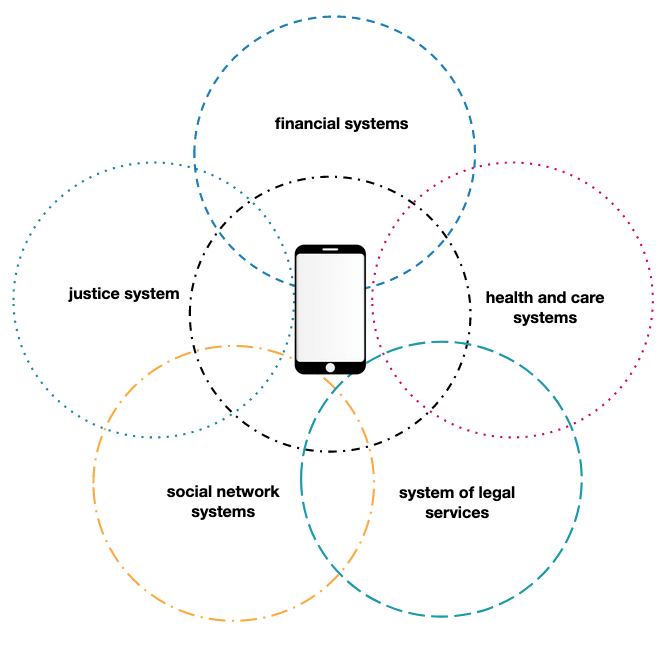Tech Ethics in our decision making reference
- Date
- Authors
- Lisa Talia Moretti
- Areas
Table of Contents
Introduction to Ethics in tech
Technology is not a product, it's a system. What we mean by this is that technology is never only an app, a product or a service. Rather, technology is weaved into social systems by facilitating how people transact with the world around them.
Social systems include, but are not limited to, the justice system, the information system, the healthcare system but also less tangible systems like power or race.
Data is a by-product of these transactions.
It is therefore crucial that when we design digital products and services, we think about the impact we’re having on the systems in which people live their lives.
The below questions support ethical best practice by encouraging considerations of the wider social context in which designs/solutions will live.
May you design with moral imagination and deploy with care.

Mitigate against being tech deterministic
What problem are we solving with this technology?
What value is created by solving this problem?
Have we already decided to solve this problem using technology?
Does this problem really benefit from a technological fix or have we not exercised our imaginations enough?
Ensure you conduct inclusive research
How can we use participatory and inclusive research methods that enable us to learn from a range of individuals and communities across society?
Can we identify a marginal group/community who is currently underserved or worse, ignored, in this area? What are their specific needs and what are the specific barriers and pain points they face? Have we designed with them in mind?
Think big and imagine what the impact of your work can be
Locate this product/service in social and cultural systems. Now imagine we are wildly successful in our endeavours. What is the impact on the individual, communities or environment?
Imagine suddenly everyone wants to follow our lead. Which option would leave the world better off?
Which option would create the best outcome for communities, as opposed to only certain members?
Which option would create the greatest good, for the greatest number of people? (remember to define what good is for your project)
Which option would create the most happiness and the least displeasure for most people? (remember to define what happiness is for your project)
Which option would make you and the team feel most proud if it became a headline in the national news?
Which option treats all people equally rather than favours one group over others?
Interrogate your data decisions
What data are we collecting when someone uses this service?
Does every piece of data either add value to the service user and/or uphold the integrity of the service?
Is it clear to service users what data we are collecting from them, how this benefits them and how it will be kept safe?
User needs versus user rights. Have we designed for the right to decline, the right to know more and the right to question and contest?
Have we designed our data practices, design and research processes, and technical systems so that they can be audited? Who is responsible for maintaining these and who is ultimately accountable for them?